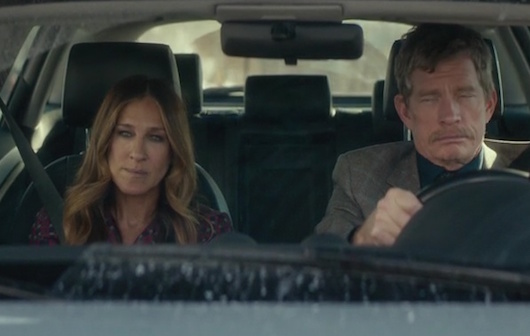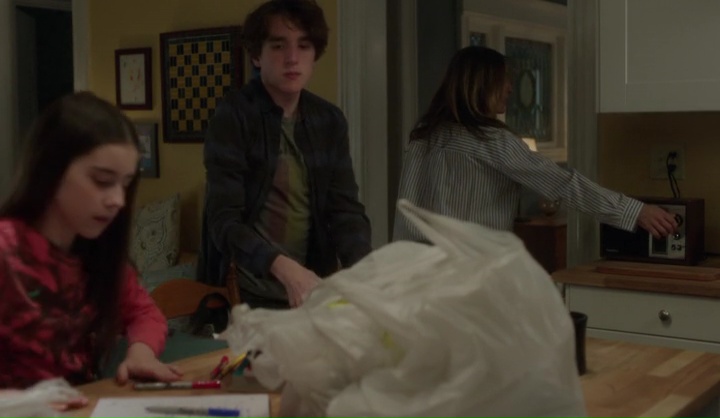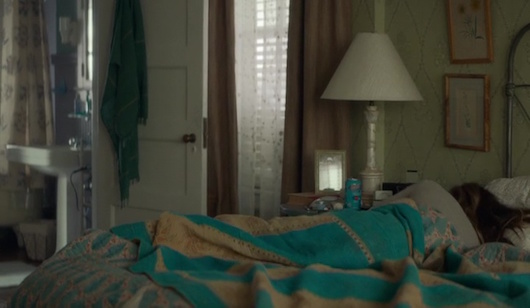 TV
TV In Which We Smoke Crack Out Of Lady Mary's Lightbulb
 Thursday, November 3, 2016 at 11:20AM
Thursday, November 3, 2016 at 11:20AM 
Imitation of Life
by ELEANOR MORROW
Good Behavior
creators Chad Hodge and Blake Crouch
TNT
Atlanta
creator Donald Glover
FX
Michelle Dockery is tired of being cast as Lady Mary. She has range, you understand, the kind of range you can only fully fathom when you see her smoking crack out of a light bulb. In Good Behavior, Letty Dobesh is a con artist and recent parolee who was imprisoned for child endangerment. Her black son lives with her mother, who does not allow her to come into a few feet of the boy. She waves at him from a window and sobs a bit.
Buying crack is no treat either. In the south, you apparently have to buy crack from a trucker holding a gun. At least he did not point the gun at Lady Mary. I started to wonder at some point during this drug deal why she didn't just ask Pitbull for the crack? Or Flo Rida? Miami can't have been that far.

It is open season on the American South, and North Carolina writer Blake Crouch returns to series television after two mediocre seasons of his post-apocalyptic jaunt, Wayward Pines. Fox was no longer interested in working with Crouch, whose books do not have a large enough audience to draw television viewers and whose concepts remain overly conventionable.
His most marketable project were the stories based around this female con artist. Good Behavior is the least gritty show about a crack addict you can imagine. When Letty Dobesh does not call her parole officer back, he is super understanding. When she does not show up for a mandatory meeting because she is repurposing aspects of her hotel room to smoke crack cocaine out of, he's like, "Get me next time."

Letty is stealing jewelry from a hotel room (never stay in a hotel if you can help it) and she hides in a closet while two men discuss the killing of a woman. Instead of just moving in with her life, Dockery throws on a blonde wig and picks up one of the men at the hotel bar, pretending to be a school teacher. This is not the North Carolina I know and love.
Dockery's forehead is intense in this show – since she has to wear so many wigs, bangs are an impossibility. Where she gets the money for these wigs is an open question. She has sex with the murderer for some reason – it is never explained why. The next morning she wakes up while he is in the shower, drives to the house where he is going to commit a crime to prevent it. It is a good thing there is a loaded shotgun in the house, since she has no plan other than that.

The South looks no better in Atlanta, Donald Glover's FX series about being poor after dropping out of Princeton. Earn (Glover) manages his cousin Alfred "Paper Boi" Miles, who he alternately admires and is disgusted by. He has a child with Van (Zazie Beetz) who alternately admires and is disgusted by him.
There are tons of things in Atlanta which are rarely seen in television. Glover's character eschews his previous roles as a sunny jokester and is the most depressive, depressing protagonist on television. One episode finds Van and Earn at a Juneteenth party hosted by a white optometrist and his African-African wife. The praise and condescension afforded Earn at the event is confusing to both of them. The reception of Atlanta by mostly white critics pretty much parallels the white host telling Earn, "You've never been to Africa! You have to go!"

Diet racism, as I believe it is now called, is amusing to satirize. It tends to feel like empty calories after awhile, but mostly Earn is in his own distinct world – white people are only background noise to him. Atlanta simultaneously makes white people feel a lot better about themselves for watching it, and creates its own distinct version of being black in America. You would think these two things would be in conflict with each other, but Atlanta takes place at such a wonderful, deliberate pace that conclusions and inferences have to wait for the entire story to be told – not simply an abrogated part.
This way of storytelling is so much more enjoyable than having scene-after-scene thrown in our face. We learn everything about Letty Dobesh in forty minutes. After ten episodes with Donald Glover's moody alter-ego, we still wonder.
Eleanor Morrow is the senior contributor to This Recording.









































